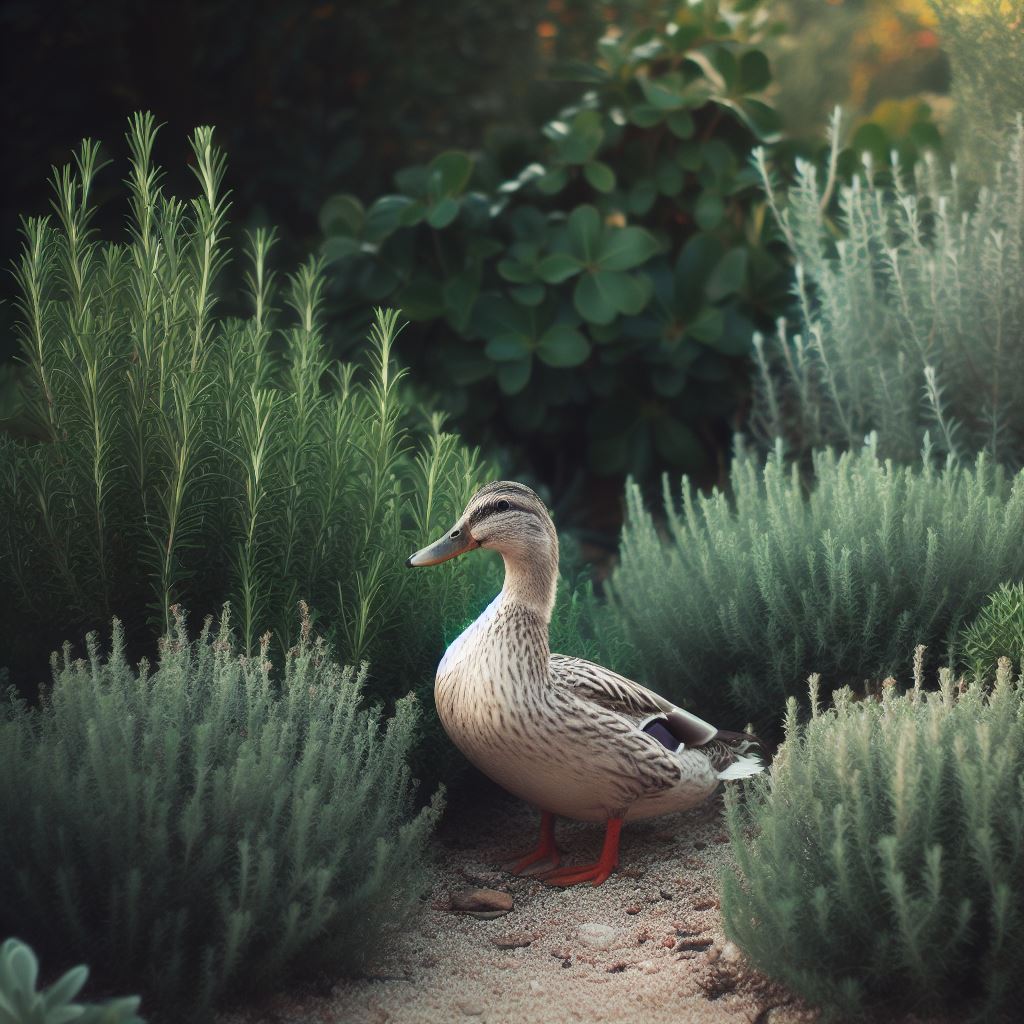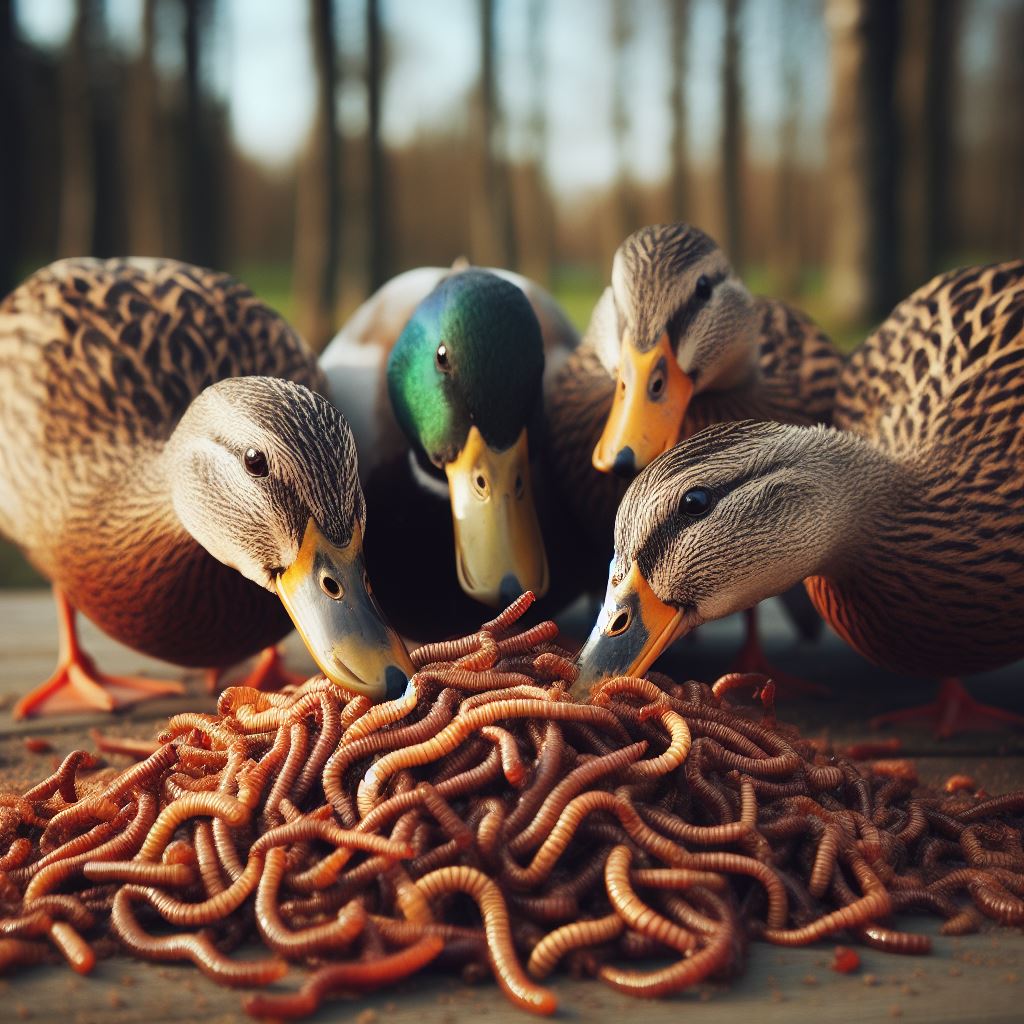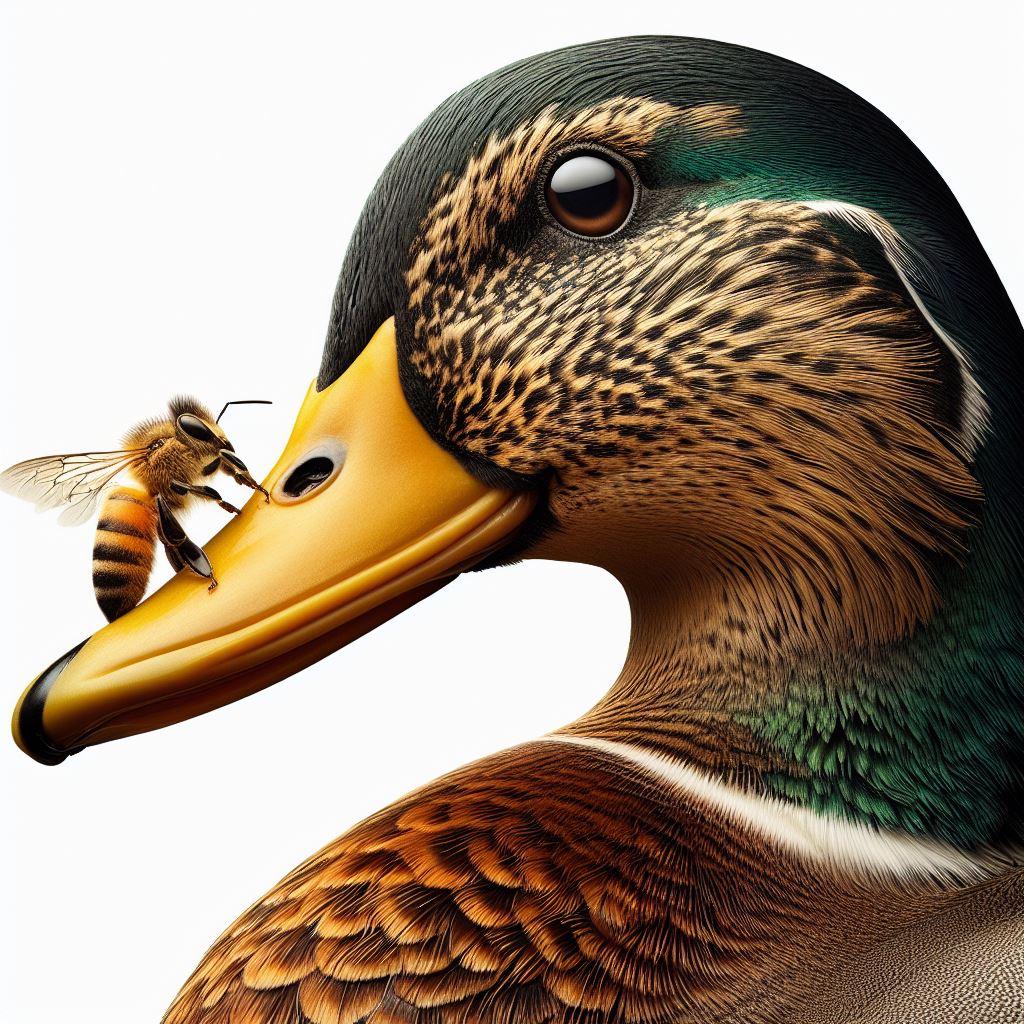Can Ducks Eat Rosemary?

Table of content:
Rosemary is an aromatic herb commonly used for cooking and herbal remedies. But is it safe for ducks to eat? As a duck owner, you want to ensure your feathered friends get optimal nutrition while avoiding potentially toxic foods. This article explores whether ducks can eat rosemary and how to safely incorporate this fragrant herb into their diet.
Feeding Rosemary to Ducks
Rosemary contains nutrients that may benefit duck health. However, the suitability of any human food for ducks depends on the type of duck, its age, and the quantity given. Researching any new treats is essential to prevent toxicity and maintain your ducks’ wellbeing.
This guide examines rosemary’s safety and nutritional value for ducks. It provides duck owners with practical tips on using rosemary as an occasional treat while prioritizing a balanced diet. Let’s explore the intriguing intersection of duck nutrition and herb garden bounty.
 Can Ducks Eat Rosemary?
Can Ducks Eat Rosemary?
Yes, ducks can eat rosemary in moderation. Both adult ducks and ducklings can consume small portions of fresh or dried rosemary as an occasional treat.
Rosemary offers health benefits to ducks due to its antioxidant, anti-inflammatory, and antimicrobial properties. Its robust flavor and fragrance also make it an appealing addition to duck diets.
However, rosemary contains volatile oils that may cause toxicity in large doses. It’s crucial to feed rosemary sparingly and avoid overconsumption.
Nutritional Benefits of Rosemary for Ducks
Rosemary contains compounds beneficial to duck health:
- Antioxidants like rosmarinic acid, carnosic acid, and carnosol fight cellular damage from free radicals.
- Anti-inflammatory compounds reduce inflammation.
- Antimicrobial substances deter pathogenic bacteria and fungi.
- Vitamin E supports a healthy immune system and tissue repair.
- Iron aids in blood cell and hemoglobin production.
- Calcium is essential for bone strength and eggshell quality.
These nutrients support ducks’ overall wellness when consumed in moderation. The phytochemicals in rosemary also enhance palatability, encouraging ducks to eat a balanced diet.
Feeding Frequency and Quantity for Ducks
When adding rosemary to your ducks’ diet:
- Limit to a sprinkling 1-2 times per week as an occasional treat.
- Use 1 teaspoon of dried rosemary per duck or a 3-inch sprig of fresh rosemary.
- Chop or mince fresh rosemary to prevent choking.
- Mix into feed rather than offering alone to deter overconsumption.
- Provide ample fresh water to flush out any excess oils.
- Watch for signs of toxicity like diarrhea, vomiting, or lethargy.
With a measured approach, rosemary can safely augment a duck’s routine diet. But it should never outweigh balanced offerings like pellets, grains, vegetables, fruits, and insects.
 Can Ducklings Eat Rosemary?
Can Ducklings Eat Rosemary?
Rosemary is safe for ducklings over 3 weeks old in small, occasional servings. However, some duckling experts advise waiting until 12 weeks to introduce herbs.
Younger ducklings have sensitive digestive systems still developing the capacity to process diverse foods. Hold off on novel items like rosemary until a duckling matures.
Benefits of Rosemary for Ducklings
In tiny portions, rosemary gives growing ducklings:
- Antioxidants for immunity and cell health.
- Anti-inflammatory effects for tissue healing.
- Vitamins and minerals like vitamin E, iron, and calcium for proper development.
- A flavorful, aromatic treat to supplement a balanced diet.
Yet the risks outweigh potential benefits for very young ducklings. Provide rosemary sparingly once a duckling reaches 12 weeks old.
Feeding Recommendations for Ducklings
Here are some rosemary feeding tips for ducklings:
- Avoid altogether for ducklings under 3 weeks old.
- At 3-12 weeks, choose duckling starter feed only.
- Once 12+ weeks, offer a tiny pinch of dried rosemary once weekly.
- Increase gradually to 1/2 tsp dried or 1-inch fresh rosemary twice weekly.
- Always mix into wet feed rather than dry pellets.
- Chop or crush fresh rosemary to prevent choking.
- Watch for adverse reactions like digestive upset.
- Prioritize starter feed, fruits, veggies, greens, etc. for balanced nutrition.
With patience and these portion limits, you can safely introduce rosemary to benefit growing ducklings.
Other Herbs Ducks Can Eat
In addition to rosemary, ducks enjoy small amounts of other culinary herbs. Here are some great options:
| Herb | Key Nutrients | Feeding Tips |
|---|---|---|
| Basil | Vitamin K, iron, calcium | Chop fresh leaves. Use sparingly as flavoring. |
| Oregano | Vitamins A and K, antioxidants | Dry or crush fresh leaves before mixing into feed. |
| Parsley | Vitamin C, vitamin K | Chop fresh leaves. Feed sparingly 2-3 times per week. |
| Thyme | Vitamin A, antioxidants | Use dried thyme in tiny pinches. |
| Dill | Vitamins A, C, and K | Sprinkle chopped fresh dill over wet feed. |
Herbs offer phytonutrients, minerals, and natural compounds ducks can benefit from in moderation. Mix with their dietary staples or use dried herbs to sprinkle lightly over wet food. Always research safety and introduce new herbs slowly while watching for reactions.
Offering Ducks Herbs With Care
When sharing garden herbs with ducks, proper research is critical. Many herbs, including rosemary, have volatile essential oils that can accumulate to toxic levels in a duck’s small body. Feeding amounts and frequency must be limited.
Ducks also often overindulge in exciting new flavors like rosemary if allowed free access. Offer tiny servings blended into wet food rather than alone. Prioritize a balanced main diet over supplemental herbs for optimum nutrition and health.
With prudence, herbs like rosemary can be a safe, nutritious occasional treat for ducks. However, a varied, well-rounded diet remains the best way to provide great duck care.
Conclusion: Rosemary as an Occasional Duck Treat
Rosemary and other herbs have a place in moderation in a duck’s healthy diet. Their antioxidant, anti-inflammatory, and antimicrobial properties can support duck wellness when used judiciously. Follow portion limits for the safest results.
With prudence and planning, aromatic rosemary and other herbs can complement the diverse nutritional needs of ducks of all ages. As duck owners, we seek the best care for our quacky companions. Offering variety while emphasizing moderation provides healthy, happy ducks that bring us joy.
Welcome. I’m Adreena Shanum, the proud owner of this website, and I am incredibly passionate about animals, especially poultry. I founded adreenapets.com as a labor of love, stemming from my desire to share my knowledge and experiences with poultry enthusiasts worldwide.




